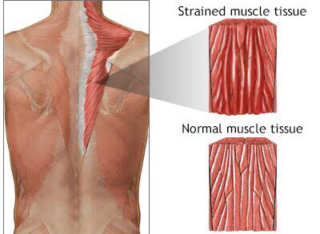CONDITIONS
Medical Conditions we treat:
Medical Conditions we treat:
- Musculoskeletal Conditions
Joints & Bones
Frozen Shoulder (Adhesive Capsulitis)
Bursitis
Dislocated Shoulder
Post Surgical Rehabilitation
Knee Pain
Osteoarthritis
Condramalacia Patella
Joint Stiffness
Neck & Spine
Neck Pain & Stiffness
Spondylitis
Low Back Pain
Sciatica
Degenerative Disc Disease(DDD)
Herniated Discs(Bulging Discs)/Slipped Disc
Spondylosis
Scoliosis
Piriformis Syndrome
Posture problems
Muscles
Spasm
Fibromyalgia
Rotator Cuff Injuries
De Quervain’s tenosynovitis
Trigger Finger
- Neurological conditions
- Sports injury conditions
Muscle Strain & Tear, Cramp
Strains, often called pulled muscles, are stretched or torn muscles or tendons. They occur most often in the shoulders, neck, abdominal area, back, hips, and legs. “The injury often happens when you need to exert force with speed, like in sports such as tennis, golf, and running,” . “Typically, the injury occurs when the muscle contracts at the same time it is being lengthened.”

Strains are graded from 1 to 3, depending on the severity. “Muscles that are fatigued, overused, or not warmed up are at increased risk of a strain”. An imbalance between weak and strong muscles—for example, a strong quadriceps (front of the thigh) paired with weaker hamstrings (back of the thigh)—can also cause a strain.
A muscle tear or muscle strain happens when your muscle is overstretched. Muscle strains can happen in varying degrees– (1 through 3) from a few muscle fibers being torn to nearly all of your muscle fibers tearing.
Causes
Muscle strains typically occur when your muscle is being overloaded with too much weight or your muscle has reached its limit. Common reasons you may have a muscle injury include:
- Improper lifting technique
- Muscle Fatigue
- Sudden fall
- Sports Injuries
Symptoms
When a muscle tear occurs, the entire structure of your muscle is affected including damage to your blood vessels. Once these are damaged, they’ll bleed into the surrounding muscle fibers and tissues leading to swelling and bruising.
If you’ve suffered a major muscle sprain you may experience:
- Sudden and severe pain
- Swelling
- Bruising
- Bleeding
- Very limited range of motion
- Weakness
If it’s a minor sprain, you may have slight pain and stiffness but there may not be as much swelling or bruising.
Cramps
More than 90% of cramps happen in the hamstrings, quadriceps, or calves. The symptoms are unmistakable: sudden, involuntary, and painful contractions. Cramps are often linked to fatigue, exercising in hot and humid weather, prolonged overuse, or dehydration. Another possible cause is electrolyte deficiency. People who take diuretics or have kidney disease can develop an electrolyte imbalance, and are at a higher risk of cramps


